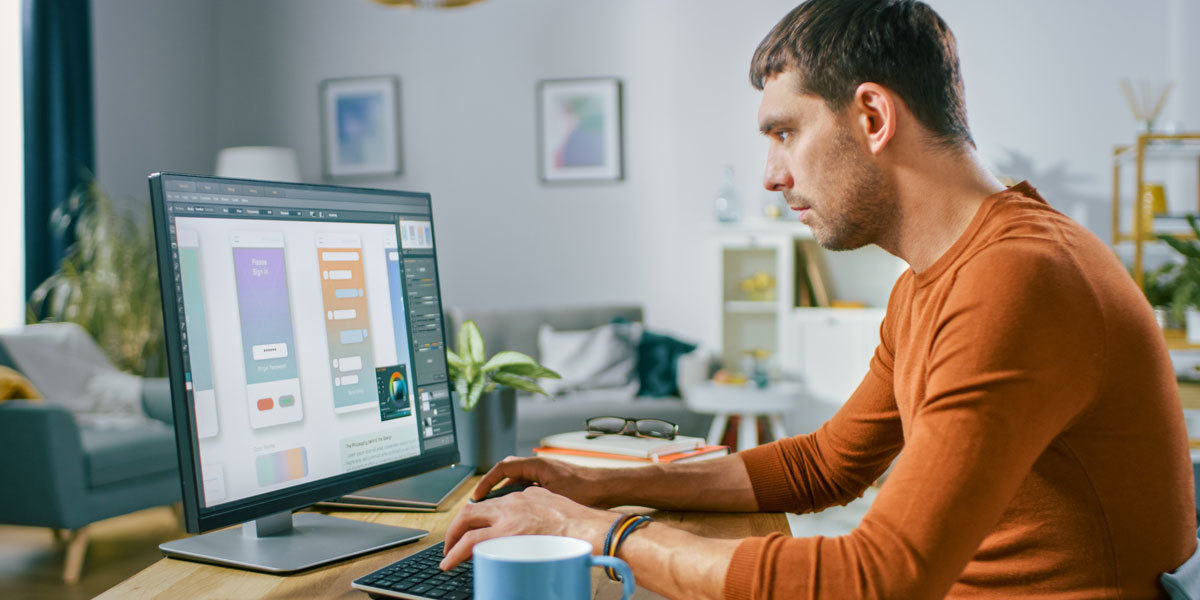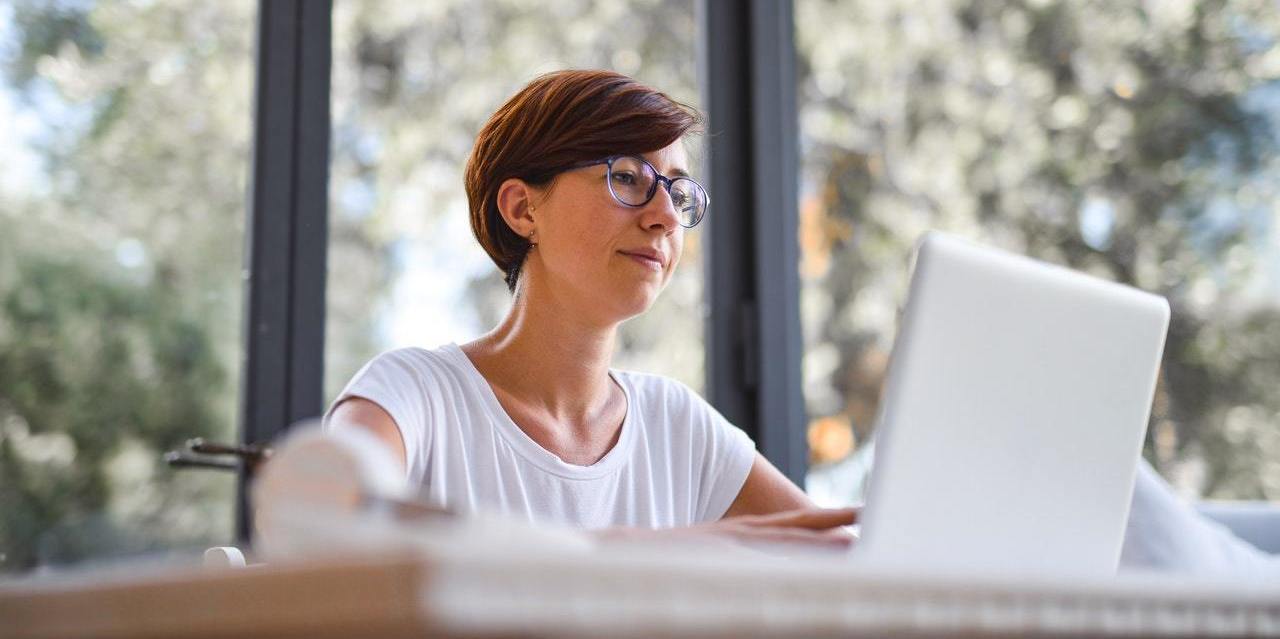Your Website Questions: Answered
Published on 24th May 2021
Whether you’ve started a new business or are a small business looking to refresh your brand, your website should be at the top of the list of things to do. But sometimes it’s just not easy to know where to start. It can be expensive; you’re not sure on the design you want; do you build it yourself or hire a website designer?
At it’seeze, we hear a range of frequently asked questions from many of our clients, so let’s dive in and answer the most common questions about websites for you.

Why do I need a website?
Well, maybe ‘need’ is the wrong word to use. Of course it’s possible to run a business without a website, and be successful. Some small business owners may think that their business is too small to warrant a website. But if you’re serious about being successful in whatever it is you do, even the smallest of businesses should have a website - whether you’re selling jam at local markets or are a plumber servicing your close-knit community.
More and more people rely solely on searching online for products and services and if they can’t find your website, then they’ll turn to the businesses they can find online - your competition. Plus, if you have ambitions to scale up your business, automate services, sell more products, reduce outgoing costs, and generate inbound inquiries, then a website will help you do this. A website creates an online presence, promoting your business in a number of ways:
Allows small businesses and start-ups to compete with bigger companies.
Strengthens your brand, giving the impression your business is larger than it is and creating credibility.
Enables businesses to enter international markets and attract trade from around the world.
An extremely cost-effective way to market your business.
Open for business 24/7.

What should a website do?
Different websites have different purposes, but principally, it’s to promote your products or services to visitors and turn them into customers. It provides all the relevant information about your business: what you do, how you do it, why you do it, and how people can contact you.
When designing your website, keep in mind the following:
Is it easy for people to understand what you do within five seconds?
Ensuring your website includes contact details is crucial.
Focus on the benefits your products or services will provide for your customers, and why they need you.

What makes a good website?
Different website users are looking for different things from a website, such as ease of use, quality of content, and functionality. From a design perspective, there are several key aspects to a good website:
Ease of use – is it easy for visitors to find what they’re looking for? Your website should have a clear and easy flow where visitors can find information about your products or services in as few clicks as possible.
Design – does it look attractive? Think about the fonts you use; is it easy to read? Consider colours; do they match your branding? Make sure your website isn’t cluttered. Keep a certain amount of white space to break it up; a website that’s too busy will just confuse visitors. A good website design is a number one factor for 48% of internet users in determining a company’s credibility.
Content – the content should be concise and to the point, without being short, sharp or blunt. It needs to be easy-to-read, engaging, and informative yet retain a consistent tone throughout. Include testimonials where possible and always ensure a call-to-action is on every page, such as ‘book an appointment’ or ‘contact us’ buttons.
Functionality and navigation – does it contain all the necessary functions, such as ordering online on an ecommerce website, making an enquiry, or booking an appointment? It should be easy for a visitor to move around on your website without them having to think too much.
Imagery – good quality images are crucial to any website. Nobody wants to see images that are blurred or pixelated. Ensure all images are relevant and showcase your products or services.
Clear purpose – ensure your website reflects exactly what you do. So, if your business is selling products, focus on the products you sell. If it’s a music venue’s website, focus on the venue’s benefits to bands in using your venue’s facilities.

Should I build it myself or hire a website designer?
Now you know why you need a website and what makes a good website, it’s time to decide whether to build it yourself or hire a professional website designer. Let’s look at the two options in more detail.
Online website builders
For many, particularly start-ups, online website builders are an attractive option, predominantly because they are cost-effective; well, at first glance anyway. Often, by the time you’ve added the necessary apps and widgets to ensure the right functionality for your website, you’ll find the price has increased considerably. Building your own website starts with a basic template – you can choose from hundreds, some of which are free, some of which require a payment. Most online website builder providers offer packages that include limited functionality and customisation. That said, if you need a very simple website whereby your imagery does most of the talking, such as a gallery, this could be the right option for you.
The drawback is that whilst providers say you can build a website within an hour, you’d be hard pushed to achieve this, even if you have some experience. The very basic templates are relatively easy to use for a beginner but they won’t provide you with a website that necessarily impresses users. Most online website builder packages don’t incorporate search engine optimisation (SEO) functionality, neither are they optimised for mobile devices. With a significant rise in the number of people searching online via their mobiles, 82% according to the Federation of Small Businesses, this has become a critical factor for websites.
Hiring a professional website designer
Whilst the cost initially may seem more, in the long run hiring a professional website designer is often more cost-effective and stress-free. A web designer will include all the functionality you require in your website not just for the next six months, but longer term. This means that as your business grows and you want to make changes to your website, the functionality is already in place to adapt your website according to your needs. As your website is being built from scratch, you can be as creative as you like. Your web designer is able to customise your website according to your wishes, now and in the future. The next question is, do you opt for a national or a local website provider?
You may be thinking the bigger the better when it comes to web design companies. This isn’t the case - local website design companies like it’seeze have a range of cost-effective packages to suit your needs. If you do choose a big agency, make sure their customer service and ongoing support checks out, and that features like SEO, mobile optimisation, and security are either included or at least you’re clear on their costs. Don’t forget, some national website companies outsource the work to smaller design centres, often outside the UK.
Smaller, freelance website designers can be a suitable option for small businesses, although they won’t always be able to offer the best in security features or CMS systems. Most use open-source CMS systems based on WordPress, Drupal, or Joomla which could cause a problem with updates and the login process. It can also take longer for freelance web designers to build the website you desire as they don’t have the resources of a national provider. However, you will probably get much better support and communication, and they are more likely to listen to what you really want out of your website.

How much should a website cost?
This is the biggest question of all, particularly if you’re a start-up or small business. When hiring a professional website designer, the costs typically incorporate a set-up fee and a monthly fee that includes the web hosting, domain name renewal, and ongoing support. The cost of your website depends on a variety of factors. The first consideration is a self-build website. Whilst these are cheaper on the face of it, by the time you’ve added the necessary functionality for your website; paid for the relevant apps; optimised for mobile devices; and incorporated SEO, it could well end up being rather expensive in terms of both your money and your time.
If you opt to go with a large design agency, be prepared to pay a lot more but expect far more for your money. Smaller, freelance website designers also offer cost-effective packages for most businesses depending on your requirements, but won’t necessarily be able to offer the same level of ongoing support, without billing per hour which can add up. Looking to create a new website for your business? At it’seeze, we make website design easy, flexible, and cost-effective; offering all the benefits of working with a national web design company with the added perks of a local, friendly, and supportive service. Get in touch with us today to learn more about our affordable web design services and how we can create the website of your dreams and turn your business into a success.
Not sure if your current website is working for you? We offer a free website audit that identifies the areas where improvements can be made, providing you with tailored recommendations and simple, actionable advice to get it back on track.
Tagged as: Web Design, Website Advice
Share this post:



